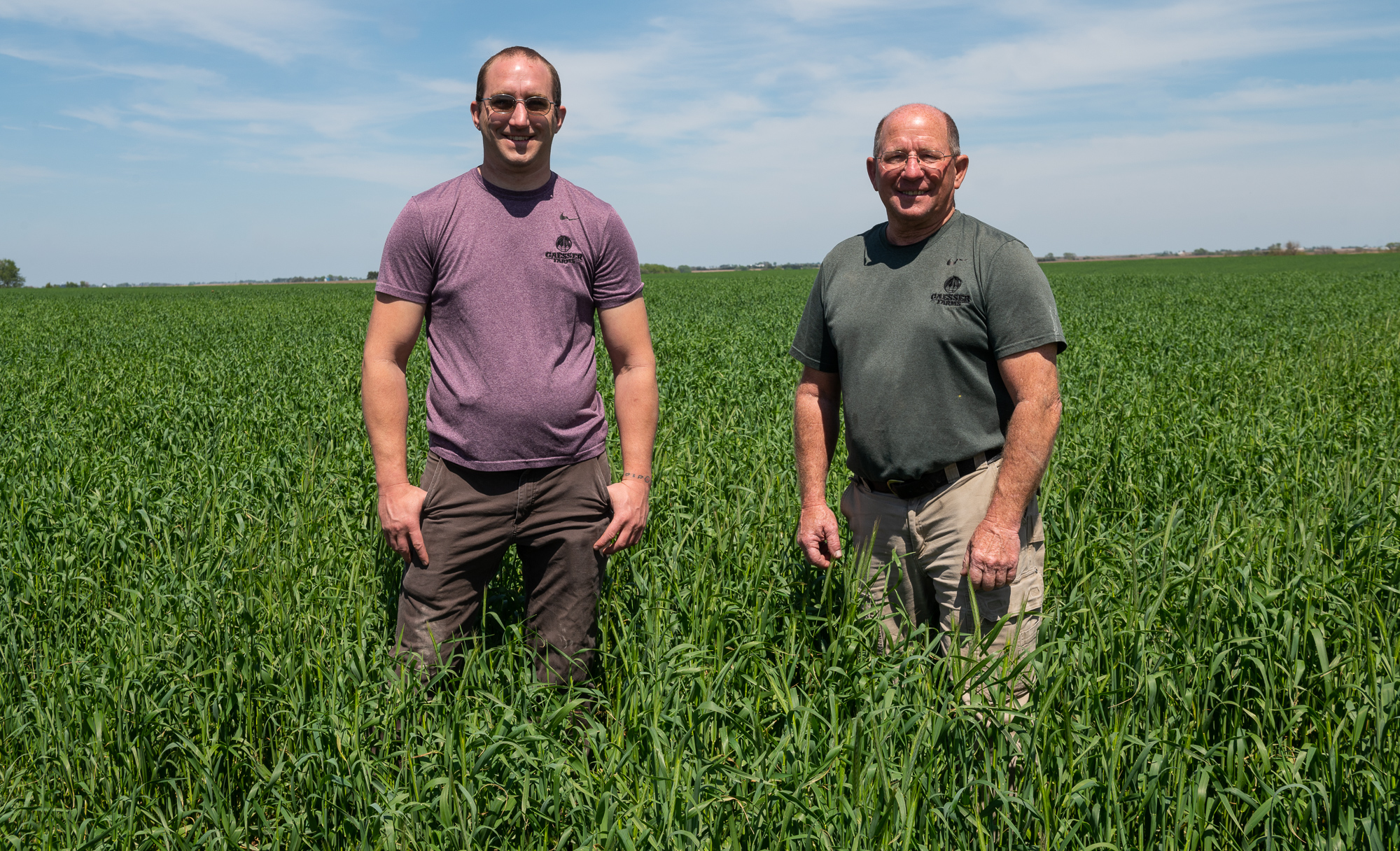
Ray and Chris Gaesser have incorporated perennial grass trials on their farm near Corning. They will participate in a virtual learning session on Feb. 15. (Photo: Joseph L. Murphy/Iowa Soybean Association)
Discover benefits of perennial groundcover at Feb. 15 event
January 28, 2021
Two Iowa soybean farmers will join a group of Iowa State University (ISU)scientists, professors, and industry professionals to discuss the benefits of perennial groundcover systems during a virtual learning session on Feb. 15 from 1-4 p.m.
Chris Gaesser and his father, Ray, farm near Corning and incorporated two small-scale trials of perennial grass in 2020. The Gaessers already added cover crops to the operation and are eager to learn more about the perennial practice.
“We’re interested in the benefits of perennial groundcover, including the opportunity to establish a practice that won’t require annual seeding,” said Chris Gaesser. “If we can also reap the perks of added weed suppression, use of fewer chemicals, and fewer passes in the field, that is also attractive.”
Perennial groundcovers can offer a cost-effective, practical way to provide important ecosystem services in production agriculture systems, which is only achievable by increasing plant cover diversity and duration. Such services include preventing soil erosion, building soil carbon and soil health, increasing water infiltration, reducing runoff, weed control, and retaining nitrogen.
The Gaessers worked with Corteva and ISU in three areas, working with bluegrass and fescue with soybeans. They plan to increase the trial to cover more acres and study the results with corn.
The father-son farming team will discuss their experience during the online workshop, which offers a systems approach to conservation and row crop farming.
The workshop will focus on perennial groundcover (PGC) systems, which consist of an annual row crop grown in association with an ecologically-appropriate perennial groundcover. These PGC systems conserve natural resources for crop production while enhancing the soil-plant environment, leading to both improved soil health and crop productivity.
The PGC system also recognizes existing market forces, infrastructure investments, and federal farm programs, and thus is widely supported by farmer-led groups, rural economic development organizations, and commercial input suppliers.
The three-hour workshop includes presentations from famers who are trialing PGC systems as early adopters, as well as agricultural researchers on system development and the federal policy framework, followed by Q&A.There is no-cost for this workshop.
RSVP Now
Back